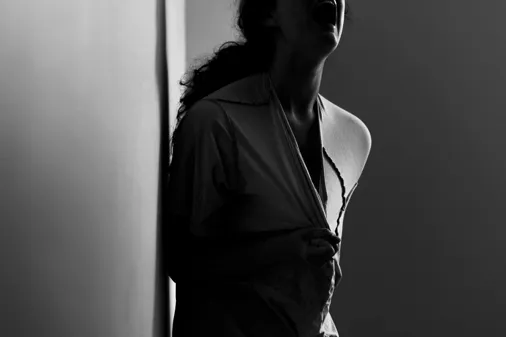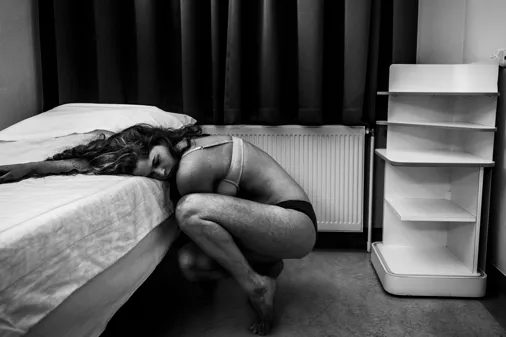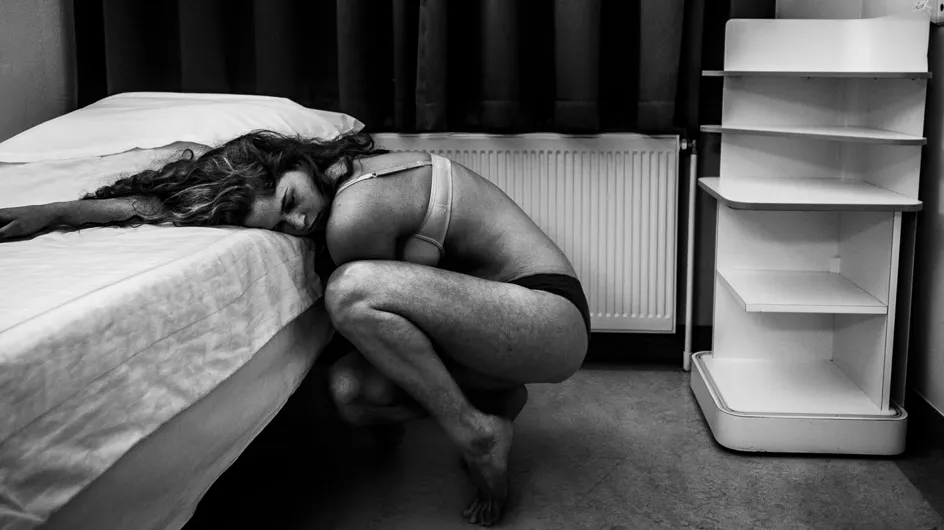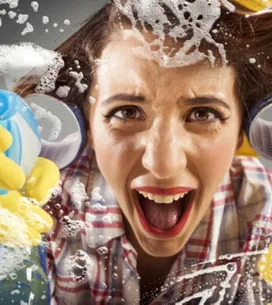Laura has no interest in giving you ‘comfortable’. Instead she’s giving you reality: “Some people who are important to me find it hard to see the portraits…but they all respect my choice…for them [it’s] also a way of understanding how I feel without saying a word.”
Yes, Laura’s not interested in giving you comfortable. This series of photographs, named after the mental hospital she stayed in, documents her stay after a suicide attempt. With a long history of eating disorders, as well as depression and anxiety, Laura invited her viewers (or is it voyeurs?) to take a look through the keyhole at her recovery.
 © Laura Hospes
© Laura Hospes
Laura’s mental problems began when she was 17 years old. She was suffering from an eating disorder and was in need of therapy. After being on a long waiting list, she eventually got the help she needed and was in full-time therapy for a year. Laura managed to get her eating disorder under control, but a transition in her life brought her mental health down again, with depression eventually holding her hostage. Laura ended up in hospital after a suicide attempt, and has been there for five months. This is where she made project UCP-UMCG.
Through her photographs, Laura was able to “show everybody where I was and how I really felt.” She had done self portraits before, but this was different: this time she pushed herself, continuing to take photographs “even if I felt miserable.” Some are eery, whilst others are heartbreaking, but no matter what, Laura’s images have managed to capture the minutiae of a life in repair after being torn apart by mental torture. She is lost, pained, tormented.
They make for uncomfortable viewing, but there’s no pretence here. These are much more than selfies, this is documentation. Personal and intimate, it’s a visual journal that thrusts Laura’s life under lock and key in the spotlight, with the photos in turn providing her with a kind of release - a kind of therapy, almost. She says of the series: “Other people go to a psychiatrist to talk about their experiences, but I take photos of myself. It’s my way of dealing with all the difficulties.”
 © Laura Hospes
© Laura Hospes
But Laura’s photographs act as more than just her need for release - it also highlights the need for more art like her own, and the need for a continual and open dialogue on mental health issues, which she knows could be lifesaving: “I hope that people who are not familiar with hospitalisation will see how difficult the struggles are and which emotions will come by. There is also a group of people who could recognise themselves in my photos. For them I hope they feel taken seriously as they are not crazy. Everyone could end up like this, so you are not a less person if you do.”
What do you think about Laura's photographs? Let us know: @sofeminineUK
You can find out more about Laura and her art here.
You might also like...
I Went To Therapy For A Year And This Is What I Learned
22 Ways To Stop Yourself From Ruining Your Life
This Woman Has A Message About Body Image And You Need To Listen















